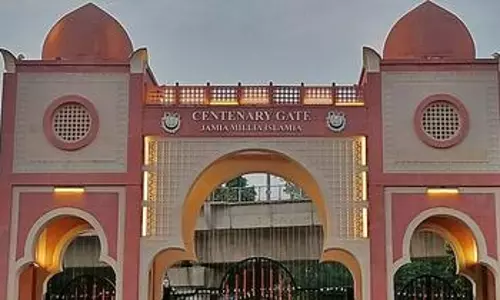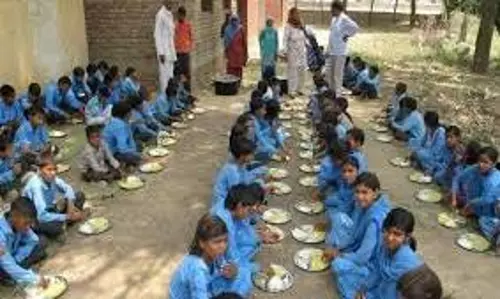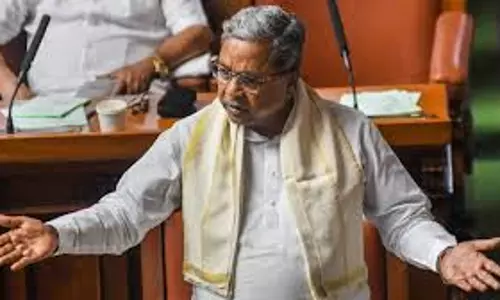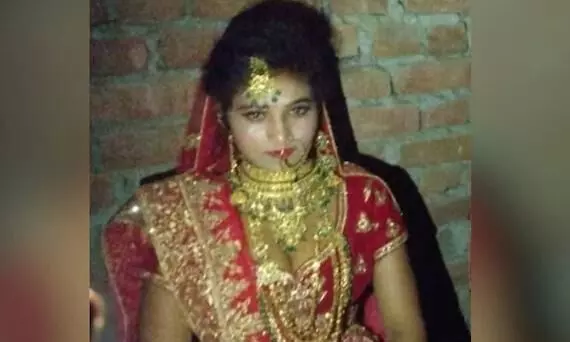
Tears in the land of expatriates
text_fieldsMigration is, in a sense, a sacrifice, a courageous step people take in pursuit of better living conditions and dreams of prosperity for their homeland and homes. They leave behind the familiar soil where they were born and raised, with its warmth of love and friendship, as they journey to lands thousands of miles away. Today's Kerala and much of the fortune enjoyed by the newer generation of expatriates were made possible by the earlier generation of migrants — those who boarded overcrowded boats, wrestled with the sea, endured hardship in unfamiliar lands, and shared hunger among themselves. Despite growing unemployment and rising debt, what drives the middle-class Malayali forward is the hope of a promised land offering work and happiness — a "Pottamma naadu" (the foster mother country) that awaits, even as the tender memories of mother land linger in their hearts. However, in recent times, some deeply unsettling and heartbreaking news has been emerging from the Keralite expatriate community—news that shatters all sense of comfort and joy. While the media and social platforms have been discussing the tragic story of a young woman from Kollam who ended her life along with her one-and-a-half-year-old daughter in their Gulf residence, yet another similar incident has surfaced: another Keralite woman has died by suicide. In both cases, domestic abuse is reported to be the underlying cause.
It has not been long since other such painful incidents were reported either. The blood-stained words those young women left behind on their final path pierce the hearts of every parent, sibling, and daughter—and indeed, every human being with a conscience. Dowry-related taunts, abuse, and even threats of divorce crossed all limits—but what made these women stick to the troubled matrimony was often their emotional attachment to their partners and a deep concern that their families should not be hurt or blamed. Yet, when the humiliation and suffering became unbearable, they saw no option but to choose a painful end. Meanwhile, similar tragedies rooted in dowry demands and domestic abuse continue to haunt Kerala as well, occasionally jolting the collective conscience of the state. Official records reveal that 99 women have lost their lives in such circumstances over the past decade. The real number could be much higher, with countless cases going unreported or fading away silently. However, the tragedies unfolding in the expat world carry a unique emotional weight. The smiles seen in video calls and the captions beneath cheerful family photos shared on WhatsApp or Instagram create the strong impression that everything is fine, that life abroad is truly happy. Loved ones, property owners, neighbours in the next apartment, and even coworkers tend to believe in this seemingly perfect reality. For expatriates long ago, who never got the chance to live even a month with their families in those faraway, prosperous lands, there is a bittersweet satisfaction when they see their children and grandchildren now residing there as complete families. That sense of fulfilment and emotional closure is difficult to be fully expressed in words.
When it suddenly becomes clear that the reality was not what we believed, and we are faced with the heartbreaking truth that there is no second chance to pull someone back into life, how can one not be shaken? Many of the countries where Malayalis live and work abroad have strict laws—where even a indecent gaze at a woman can invite legal action. In recent tragic incidents, legal proceedings have already been initiated against the accused in those countries. Whether in Kerala or abroad, no one should be allowed to escape the scrutiny of the law. Despite occasional missteps, the general image of Malayali expatriates among foreign governments and local populations has long been that of a sincere, hardworking community—people who quietly focus on their responsibilities, while holding their families and friends close. Even while cramped into bunk beds in labour camps and sponsor homes—often enduring hardship and deprivation without a word—older generations of expatriates gave their entire earnings for their families and homeland. It is their sacrifice that has built the goodwill Malayali migrants enjoy today. We may justifiably blame the central and state governments, or even embassies, for the countless challenges faced by migrants—whether it’s the exploitative cost of air travel or the denial of voting rights. But when abuses take place within our own homes, who else is truly responsible but ourselves? The only real way forward is for each of us to evolve into truly humane human beings. A family, built on mutual respect and affection, should be a safe haven—a source of comfort and strength. But when individuals within it unleash abuse, both verbal and physical, and perpetuate sexual and emotional cruelty, they become direct cause of these unfolding tragedies. Beneath the outward glamour, many expatriates including children are silently enduring immense psychological pressure. Mental health crises, suicides, and broken families are rising at an alarming rate. These issues must be addressed urgently and without delay. Expatriate communities, along with initiatives like the government-led Loka Kerala Sabha, need to intervene decisively and offer support. At the same time, every self-respecting Keralite must stand united against the toxic traditions of dowry and extravagant weddings. Let us act now, so that no more cries of pain from our daughters and sisters echo back to us.





















